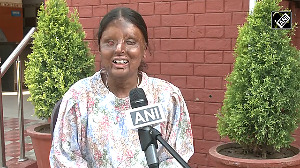'The key purpose of vaccination is to prevent hospitalisation, severe disease, and death.'
'All vaccines work equally, although mild disease cannot be prevented.'

As India scales up its Covid vaccination drive with a target of immunising its entire adult population by the end of this year, N K Arora, chairperson, National Technical Advisory Group on Immunisation, tells Sohini Das/Business Standard why achieving 100 per cent immunisation is necessary to break the transmission cycle.
Once we cover 70 per cent of the population, we achieve herd immunity. Is that remotely true?
Herd immunity is both mystical and mythical. It is also different for different diseases. For polio, we quickly realised that herd immunity would not be achievable unless 98-99 per cent children were immunised.
Herd immunity works when immunised and unimmunised individuals are mixed in a true random process and around 80 per cent are immunised. In such a scenario, the virus transmission is greatly reduced and the unimmunised are spared the infection trauma.
In a community, however, it does not work this way. The behaviour of the unimmunised is different from the other group and more often than not, stays in clusters.
Achieving herd immunity is impossible in a way. When large swathes of the population get immunised or infected, the transmission of infection will come down.
In January, for example, we had a seropositivity rate of 25 per cent and thereafter we have immunised 20-23 per cent more people of various age brackets.
During the second wave, nearly 50 per cent or more might have got infected. Overall 50-70 per cent individuals -- who are either infected or immunised -- will be part of a pool that will reduce the transmission of the virus in the community.
So, 100 per cent immunisation is imperative? Is there a need to prioritise vaccination geographically?
The target of immunisation has to be 100 per cent, and only then can we achieve something worthwhile.
Herd immunity is not required for unlocking. That is why adherence to Covid-appropriate behaviour is a must.
If I find any variant of concern or a variant of interest, there is a need to nip it in the bud with localised intervention.
The Indian SARS-CoV-2 Genomic Consortia (INSACOG) is looking very closely at the geographical level of any new variants of concern or variants of interest.
Do vaccines work against the new strains of Sars-CoV-2?
Covid vaccines are working against new variants.
The key purpose of vaccination is to prevent hospitalisation, severe disease, and death. All vaccines work equally, although mild disease cannot be prevented.
If people do get mild disease, it is not a public health nightmare. They will not need hospitalisation, intensive care or ventilator support.
There are only 22 cases (of Delta Plus) and we have picked it up rapidly as soon as it surfaced through the INSACOG surveillance process. This means our network is working effectively.
There is no need to do genomic sequencing of 5 per cent of total samples. The strategy is pick up samples in a representative manner.
As the pace of vaccination picks up, will it be challenging to cover the hinterland?
India has an extensive and elaborate rural infrastructure for vaccination, better than our urban infrastructure.
Of the huge numbers of vaccinations that happened in two days -- 8.8 million last Monday and 5 million last Tuesday -- over two-thirds were in rural areas.
We are on track for 100 per cent immunisation of the country. Vaccine availability has increased.
We can expect 200-220 million doses next month, and are targeting 1 million doses a day.












